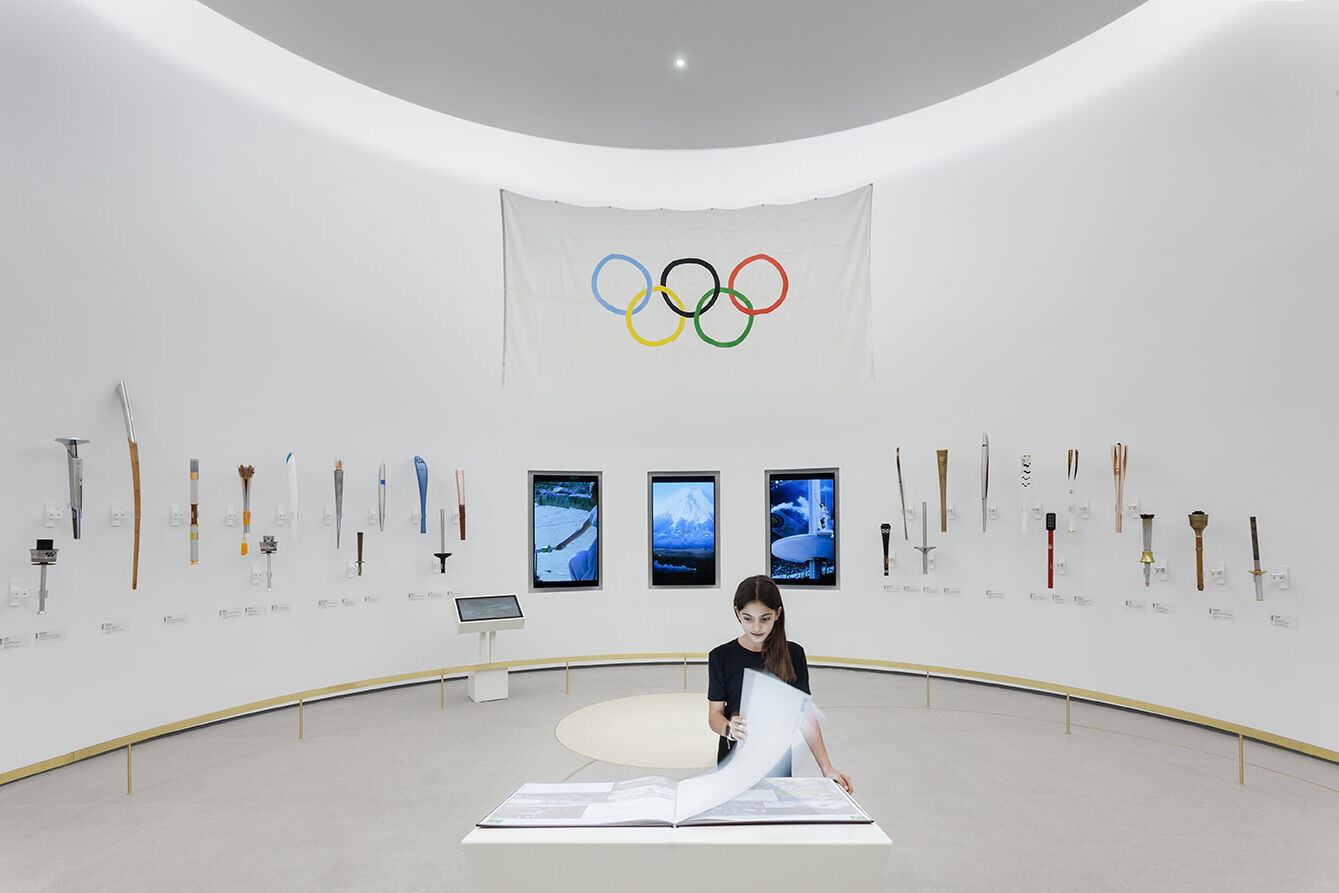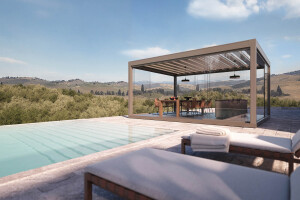Working with the shell of an existing building that used to be the ( IBC) International Broadcast Center during the 2004 Olympic games in Athens, KLab (SPATIAL DESIGN) and Mulo Creative Lab (EXHIBITION DESIGN), focused on transforming the museum’s interior in an exciting, learning experience, full of spatial and graphic suprises for the visitor. Narrating the story of the Olympic Games, ancient and modern, Athens Olympic Museum(AOM) unfolds a story of 3000 years on the evolution of sportsmanship and its heroes, the athletes.
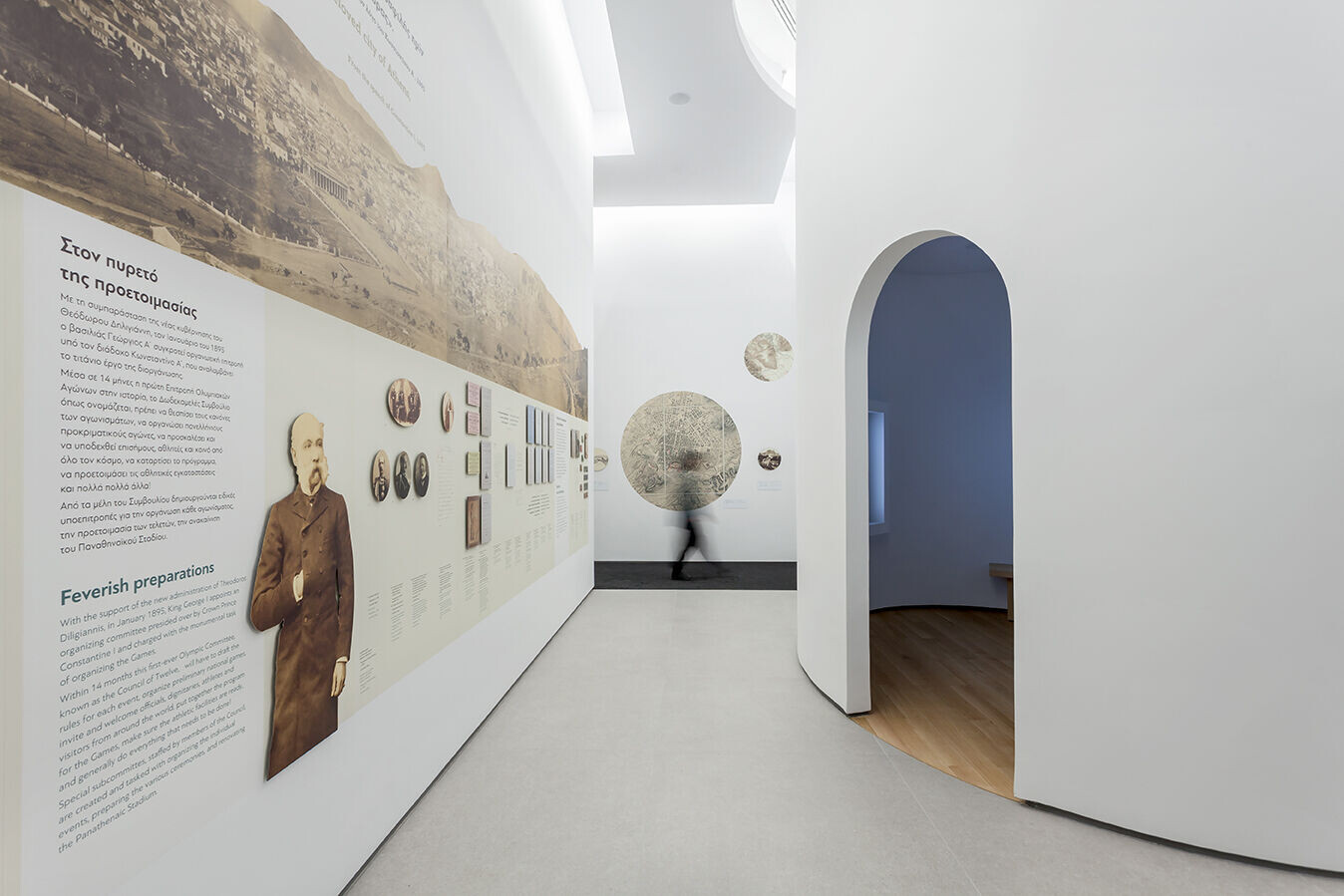
The museum is organised in two parts. One tells the story of the Olympic Games from their beginning in ancient Greece till their rebirth in 1896, and their modern period as we know it until now. The second part is dedicated in the Olympic movement its values its athletes and sports.The architects and designers developed the architecture and exhibition design in parallel, so the whole feels coherent.. Both design teams had the privilege to work simultaneously in the same space developing a complete idea of how the museum will look at the end with its exhibits and graphics.
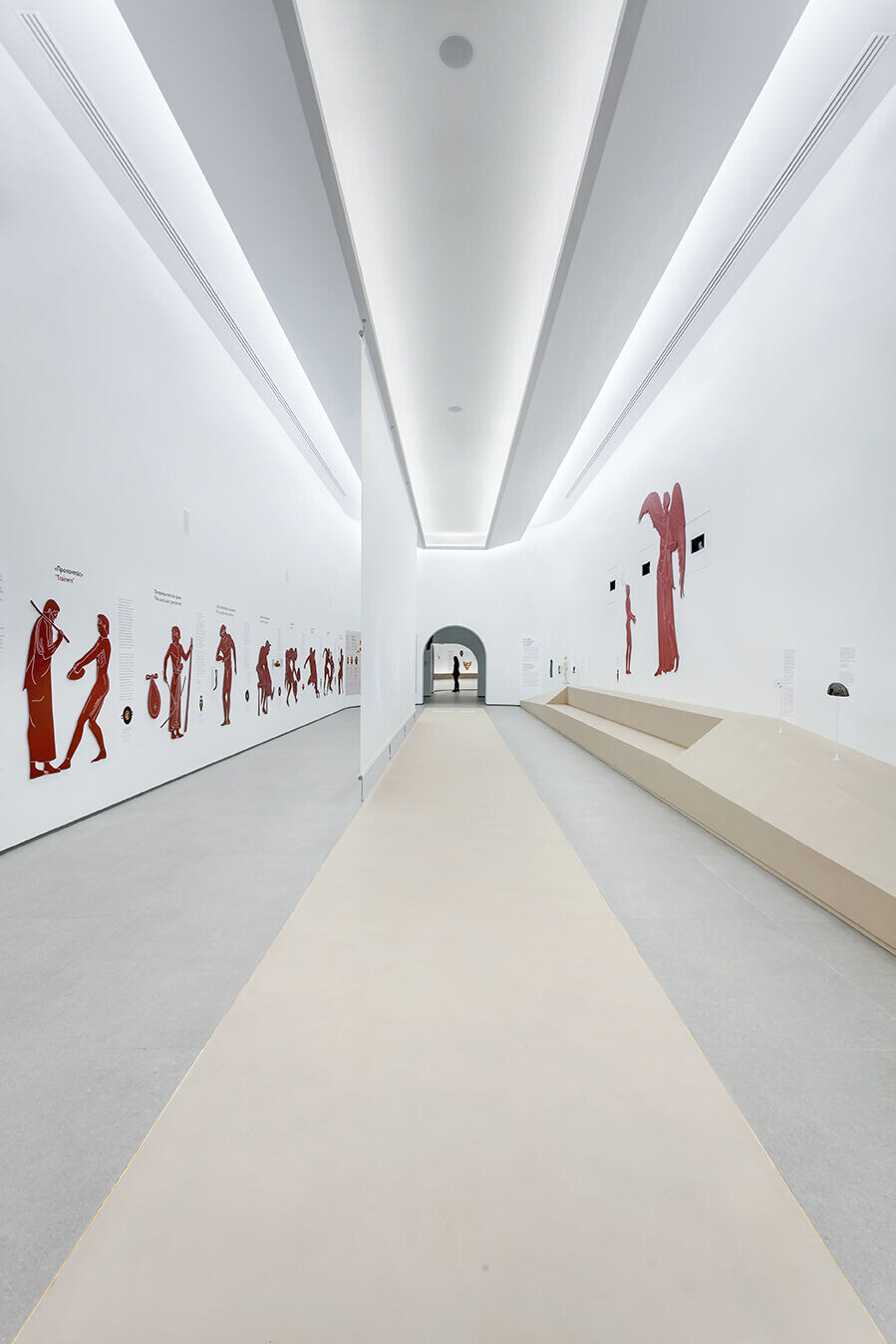
The museum both minimal and monumental gives you the opportunity of experinencing a variety of intriguing spaces . The narrative of each space lead to an ad hoc design while maintaining an overall architectural identity. Whilst spaces are powerful their abstaction allows different readings and architecture objects and graphics complementing each other without distructing from the information rich content.Curves and arches were introduced in a new way recalling the ancient stadiums. This has created a fluid organic space which covered the 1800m2 of the exhibition space making the movement of the museum visitors easy and comfort.
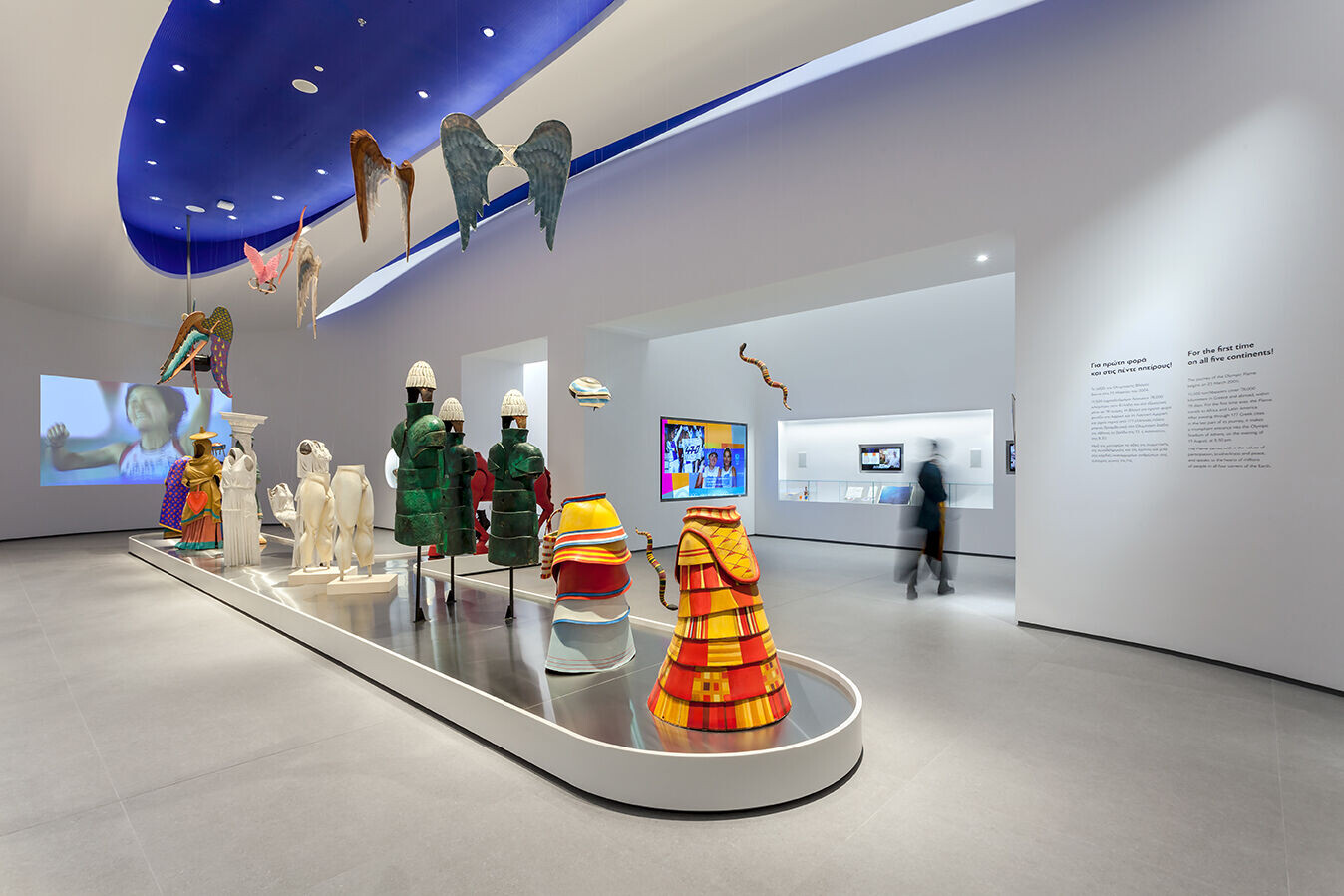
Klab architecture along with Coolshadow as lighting consultants believe that light in this museum should be a priority. We felt that it should be omnipresnt, as it in the Greek landscape, without being noticed. Spaces were filled with light simulating natural light intruding the spaces.Transitions from space to space were treated meticulously in order to provide either smooth transitions or suprising ones. Diferrentiation on ceiling heights, color and texture variations and engaging graphic illustrations produce a complex spatial story telling which emphasize the content.
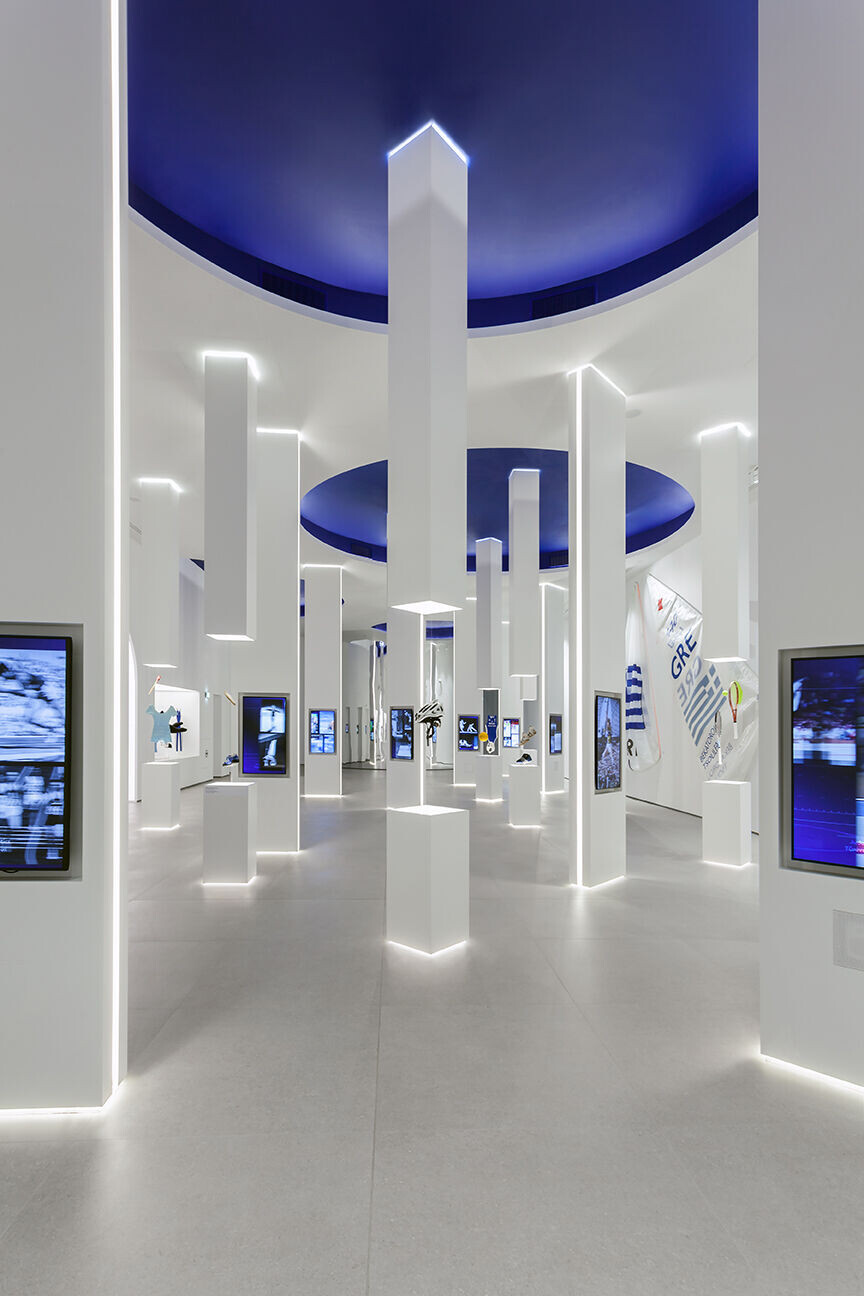
‘We had infinite sources of inspiration for the overall composition,’ says KLab’s director Konstantinos Labrinopoulos, ‘as we had many objects to work with, supported by other museums and cultural bodies and the vast archaelogical treasure of Grrece . Our design, to an extent, highlights the sense of sporting competition, through the depictions of athletes in motion, which in turn is a narration of the idea of evolution of sports through time.’
